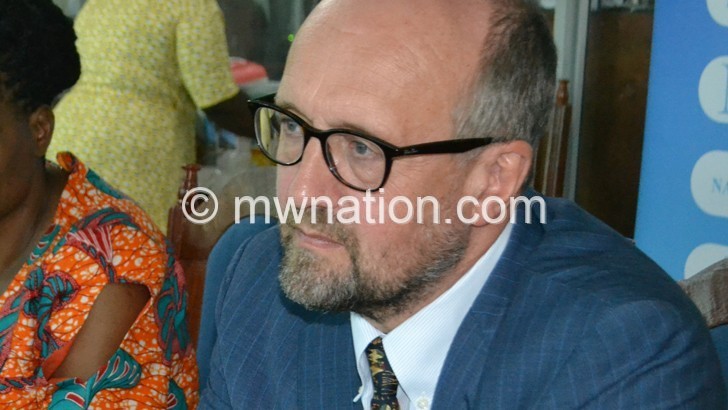Tap into energy Fund—world bank
The World Bank has challenged private sector firms to tap into the $425 million (about K314 billion) International Development Association (IDA) financing to fund infrastructure development in the energy sector.
The fund, provided under the Regional Infrastructure Financing Facility (Riff) project, is the first of its kind in Africa and will be disbursed through Trade and Development Bank (TDB) of the Common Market for Eastern and Southern Africa (Comesa).
In an e-mail response on Saturday, World Bank country manager Greg Toulmin said private firms in the country can benefit from the credit line that will provide long-term finance for infrastructure projects in the energy sector that meet development impact criteria.

He said: “Currently, TDB can only lend for up to 10 years. With this funding, TDB will be able to extend the terms of its financing up to 18 years.
“This will increase the affordability of finance for private sponsors, thus making proposed project finance initiatives more viable.”
Toulmin said the projects will be selected using a mandatory eligibility and prioritisation criteria.
Under the mandatory eligibility criteria, projects will have to show commercial bankability, leveraging of private finance, compliance with the environmental and social list of excluded activities.
It also includes IDA sustainable development lending policy as applicable to the respective countries.
The World Bank says with the prioritisation criteria, eligible projects will be scored against objective, measurable and verifiable criteria alongside other dimensions, namely project benefits and contribution, corporate commitments, emissions reduction, low-income targeting, gender actions, positive economic and financial returns.
In a statement, World Bank director of regional integration for sub-Saharan Africa, the Middle East and Northern Africa Deborah Wetzel said new operation will help to address long-term infrastructure funding gap through a regional approach focused on private financing.
Malawi and other Southern African countries suffer from ailing infrastructure, especially in the power sector.
The World Bank estimates that effective power generation in the region is less than the installed capacity by between 20 percent and 30 percent and such deficits cause about two percent loss in gross domestic product (GDP) growth in most of the countries, impeding a large number of the region’s population from accessing electricity.
The 2018 Population and Housing Census shows that only 12 percent of the population has access to electricity, with six percent using solar energy
Malawi Confederation of Chambers of Commerce and Industry has also singled out lack of meaningful investments in the energy sector and access to finance as key setback to meaningful developments in the country.





